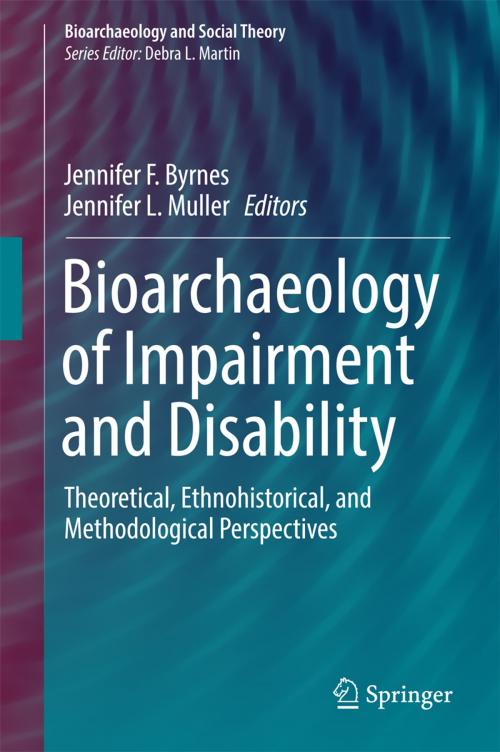Bioarchaeology of Impairment and Disability
Theoretical, Ethnohistorical, and Methodological Perspectives
Nonfiction, Social & Cultural Studies, Social Science, Archaeology, Anthropology, History| Author: | ISBN: | 9783319569499 | |
| Publisher: | Springer International Publishing | Publication: | June 28, 2017 |
| Imprint: | Springer | Language: | English |
| Author: | |
| ISBN: | 9783319569499 |
| Publisher: | Springer International Publishing |
| Publication: | June 28, 2017 |
| Imprint: | Springer |
| Language: | English |
Over the years, impairment has been discussed in bioarchaeology, with some scholars providing carefully contextualized explanations for their causes and consequences. Such investigations typically take a case study approach and focus on the functional aspects of impairments. However, these interpretations are disconnected from disability theory discourse. Other social sciences and the humanities have far surpassed most of anthropology (with the exception of medical anthropology) in their integration of social theories of disability.
This volume has three goals: The first goal of this edited volume is to present theoretical and methodological discussions on impairment and disability. The second goal of this volume is to emphasize the necessity of interdisciplinarity in discussions of impairment and disability within bioarchaeology. The third goal of the volume is to present various methodological approaches to quantifying impairment in skeletonized and mummified remains.
This volume serves to engage scholars from many disciplines in our exploration of disability in the past, with particular emphasis on the bioarchaeological context.
Over the years, impairment has been discussed in bioarchaeology, with some scholars providing carefully contextualized explanations for their causes and consequences. Such investigations typically take a case study approach and focus on the functional aspects of impairments. However, these interpretations are disconnected from disability theory discourse. Other social sciences and the humanities have far surpassed most of anthropology (with the exception of medical anthropology) in their integration of social theories of disability.
This volume has three goals: The first goal of this edited volume is to present theoretical and methodological discussions on impairment and disability. The second goal of this volume is to emphasize the necessity of interdisciplinarity in discussions of impairment and disability within bioarchaeology. The third goal of the volume is to present various methodological approaches to quantifying impairment in skeletonized and mummified remains.
This volume serves to engage scholars from many disciplines in our exploration of disability in the past, with particular emphasis on the bioarchaeological context.















